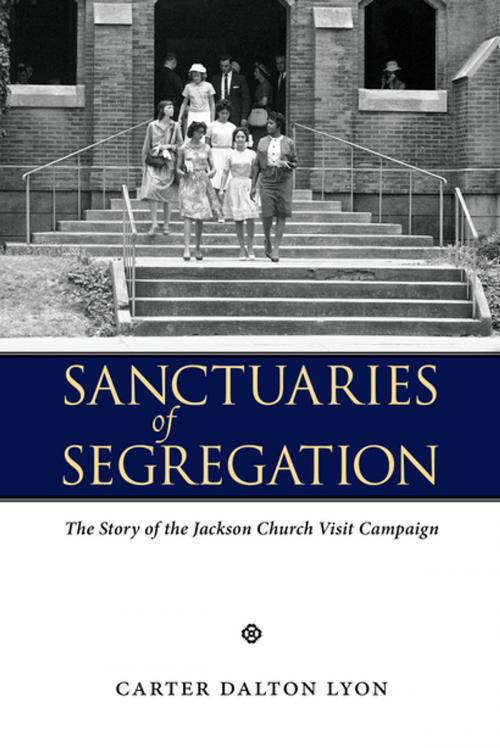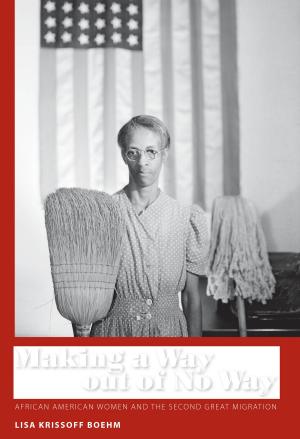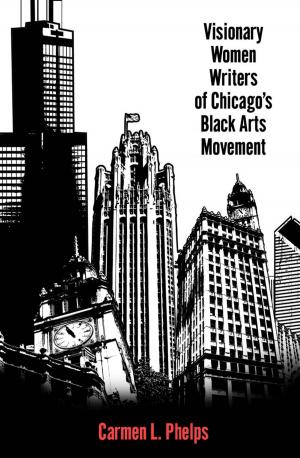Sanctuaries of Segregation
The Story of the Jackson Church Visit Campaign
Nonfiction, Social & Cultural Studies, Social Science, Discrimination & Race Relations, Cultural Studies, African-American Studies, History, Americas, United States| Author: | Carter Dalton Lyon | ISBN: | 9781496810755 |
| Publisher: | University Press of Mississippi | Publication: | March 20, 2017 |
| Imprint: | University Press of Mississippi | Language: | English |
| Author: | Carter Dalton Lyon |
| ISBN: | 9781496810755 |
| Publisher: | University Press of Mississippi |
| Publication: | March 20, 2017 |
| Imprint: | University Press of Mississippi |
| Language: | English |
Winner of the 2017 Eudora Welty Prize
Sanctuaries of Segregation provides the first comprehensive analysis of the Jackson, Mississippi, church visit campaign of 1963-1964 and the efforts by segregationists to protect one of their last refuges. For ten months, integrated groups of ministers and laypeople attempted to attend Sunday worship services at all-white Protestant and Catholic churches in the state's capital city. While the church visit was a common tactic of activists in the early 1960s, Jackson remained the only city where groups mounted a sustained campaign targeting a wide variety of white churches.
Carter Dalton Lyon situates the visits within the context of the Jackson Movement, compares the actions to church visits and kneel-ins in other cities, and places these encounters within controversies already underway over race inside churches and denominations. He then traces the campaign from its inception in early June 1963 through Easter Sunday 1964. He highlights the motivations of the various people and organizations, the interracial dialogue that took place on the church steps, the divisions and turmoil the campaign generated within churches and denominations, the decisions by individual congregations to exclude black visitors, and the efforts by the state and the Citizens' Council to thwart the integration attempts.
Sanctuaries of Segregation offers a unique perspective on those tumultuous years. Though most churches blocked African American visitors and police stepped in to make forty arrests during the course of the campaign, Lyon reveals many examples of white ministers and laypeople stepping forward to oppose segregation. Their leadership and the constant pressure from activists seeking entrance into worship services made the churches of Jackson one of the front lines in the national struggle over civil rights.
Winner of the 2017 Eudora Welty Prize
Sanctuaries of Segregation provides the first comprehensive analysis of the Jackson, Mississippi, church visit campaign of 1963-1964 and the efforts by segregationists to protect one of their last refuges. For ten months, integrated groups of ministers and laypeople attempted to attend Sunday worship services at all-white Protestant and Catholic churches in the state's capital city. While the church visit was a common tactic of activists in the early 1960s, Jackson remained the only city where groups mounted a sustained campaign targeting a wide variety of white churches.
Carter Dalton Lyon situates the visits within the context of the Jackson Movement, compares the actions to church visits and kneel-ins in other cities, and places these encounters within controversies already underway over race inside churches and denominations. He then traces the campaign from its inception in early June 1963 through Easter Sunday 1964. He highlights the motivations of the various people and organizations, the interracial dialogue that took place on the church steps, the divisions and turmoil the campaign generated within churches and denominations, the decisions by individual congregations to exclude black visitors, and the efforts by the state and the Citizens' Council to thwart the integration attempts.
Sanctuaries of Segregation offers a unique perspective on those tumultuous years. Though most churches blocked African American visitors and police stepped in to make forty arrests during the course of the campaign, Lyon reveals many examples of white ministers and laypeople stepping forward to oppose segregation. Their leadership and the constant pressure from activists seeking entrance into worship services made the churches of Jackson one of the front lines in the national struggle over civil rights.















